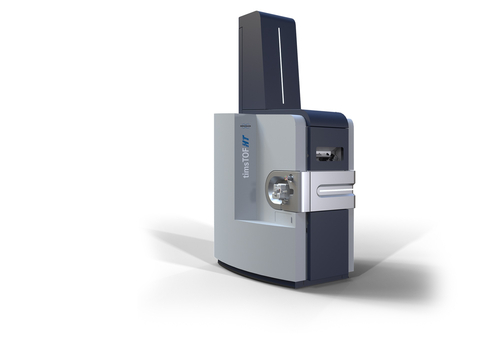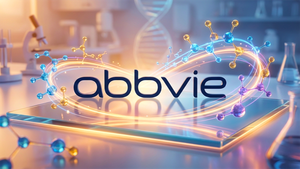- 4th-generation TIMS XR cell with even greater dynamic range can identify more than 100k unique peptides with 60 min gradients at one microgram protein loads, with high-confidence at 1% FDR and without antigen cross-reactivity
- Increased dynamic range plus new 14-bit digitizer offer excellent quantitation with <5% protein CVs for many proteins in three-proteome mixture
- Co-distribution for CellenONE pico-dispenser for single cell proteomics (SCP)
- New PaSER™ real-time data streaming and intelligent acquisition control
- timsTOF Pro 2 system revolutionizes 4D Metabolomics together with pioneering partners in small molecule biomarker discovery
At the 70th ASMS meeting, Bruker Corporation (Nasdaq: BRKR) today announced the further evolution of the revolutionary 4D Multiomics timsTOF platform with the launch of the new timsTOF HT system. The timsTOF HT includes a novel 4th-generation TIMS (trapped ion mobility separation) XR cell and 14bit digitizer for even greater dynamic range, enhanced peptide coverage and more accurate quantitation, particularly in unbiased 4D plasma and tissue proteomics and epiproteomics.
This press release features multimedia. View the full release here: https://www.businesswire.com/news/home/20220606005373/en/

timsTOF HT instrument (Photo: Business Wire)
These advances are achieved without compromising the ultra-high sensitivity and extreme robustness for high-throughput proteomics, e.g., at 50 samples per day (SPD) or up to 200 SPD, or the high scientific confidence of better than 1% peptide and protein FDRs (false discovery rates), avoiding inherent antigen cross-reactivity in targeted immune-recognition methods. The timsTOF HT instrument can identify over 100k unique tryptic peptides in 60min gradients with accurate quantification of better than 5% CVs for many protein groups in low microgram quantities of a three-proteome mixture, using the dia-PASEF technique. The timsTOF HT also is optimized for high-throughput, deep and unbiased plasma proteomics and liquid biopsy biomarker research.
Professor Florian Meier from the University of Jena said: “Our ongoing collaboration with Bruker to stream-line tissue analysis is a key area in clinical proteomics, yet extremely challenging as tissue sections and biopsies comprise very heterogenous cell populations. The dia-PASEF acquisition mode on the timsTOF HT instrument quantifies proteins across a large dynamic range even in notoriously difficult samples, such as cardiac tissue, without sacrificing throughput or sensitivity.”
Dr. Bruce Wilcox, Vice President of Proteomics at PrognomiQ Inc., uses the Seer Proteograph and the timsTOF Pro 2 for deep, unbiased plasma proteomics in the discovery of biomarkers in a pancreatic cancer study. Dr. Wilcox stated: “We detected 3822 protein groups across all 5 Seer nanoparticles for the 193 pancreatic cancer and healthy subject samples. Some 2933 protein groups were identified in at least 25% of the patient samples, using our several timsTOF systems.”
At ASMS, Bruker also announced that its timsTOF SCP system with extreme sensitivity is now also available via a co-distribution agreement with Scienion, together with the CellenONE F1.4 single-cell pico-dispenser and the new ProteoChip™, as a single vendor solution for unbiased, label-free single cell proteomics (SCP).
Dr. Holger Eickhoff, CEO and founder of Scienion GmbH, a BICO company, commented: “We are pleased to offer this complete SCP solution together with Bruker. Through our expanded partnership we can even better address the needs of the single cell proteomics community by combining the expertise of our SCP teams for accelerated research solutions development in single cell proteomics.”
PaSERTM with LFQ and Intelligent Acquisition Mode
At ASMS, Bruker demonstrated PaSER’s real-time data streams and feedback loops for intelligent acquisition processes: developed in collaboration with the Yates Lab at Scripps, users can impute acquisition parameters ‘on-the-fly’ based on PaSER’s real-time decision making for PTM targeting, retention time alignment, and dynamic inclusion and exclusion. This creates a smarter instrument for scheduling unseen candidates and deeper analysis.
Professor Alain van Gool, Head of the Translational Metabolic Laboratory at the Radboud university medical center in Nijmegen, NL, said: “We use mass spectrometry for discovery of translational biomarkers in personalized diagnostics in inherited metabolic disorders, where we focus on expression and glycosylation of protein biomarkers, and have implemented diagnostic assays. We innovate these workflows using two timsTOFs that have proven to be fast and reliable, supported by PaSER for real-time processing, (glyco)peptide identification and adjustment of instrument parameters on-the-fly. We are excited to collaborate with Bruker within our joint Center for Translational Omics on the development of feedback-based intelligent acquisition modes for glycoproteomics in clinical applications.”
PaSER version 2023 now includes real-time label-free quantitation (LFQ) for dda-PASEF, where ‘run and done’ quantitative results are available shortly after large sample cohorts have been acquired. PaSER 2023 also incorporates TIMS DIA-NN 1.1 for dia-PASEF.
Transforming high-throughput and high-confidence discovery 4D Metabolomics
The high sensitivity timsTOF Pro 2 system assists pioneering small molecule biomarker discovery partners in revolutionizing metabolomics at unprecedented scale. New workflows for the discovery of biomarkers to accelerate drug discovery and novel natural products exploit the robustness, speed and confidence of the timsTOF platform in 4D metabolomics.
Sapient Bioanalytics LLC accelerates drug discovery by uncovering pathways associated with disease mechanism, progression and patient response by using population-level data to identify sensitive biomarkers in ultra-high throughput.
Mo Jain, MD/PhD, Founder and CEO of Sapient, explained: “Sapient’s proprietary rapid LC-MS systems allow to measure thousands of molecules, including uncharacterized compounds in samples such as blood. Our six next-gen timsTOF Pro 2 systems allow us to measure more than 11,000 small molecule biomarkers per bio-sample in 43 seconds. These systems provide unmatched capacity to measure over 10,000 bio-samples per day.”
Dr. Viswa Colluru, CEO and Founder of Enveda Biosciences, uses timsTOF Pro 2 systems to discover new compounds in nature’s chemistry at an extraordinary pace. He said: “The trapped ion-mobility collision cross-section (CCS) data provided by Bruker’s timsTOF provides unprecedented 4D resolution of the many isomers in the natural world, enabling us to find novel therapeutic compounds in complex mixtures. The timsTOF Pro 2 combines cutting-edge virtually lossless ion-mobility technology with fast high-resolution TOF detection. This combination helps us profile the natural world at scale and industrialize applications in drug discovery. Bruker’s commitment to innovation and customers makes them a great partner. We are excited to continue to redefine the boundaries of metabolomics with them.”
OligoQuestTM enhanced RNA and Oligonucleotide characterization software
Bruker’s OligoQuest software offers enhanced RNA and oligonucleotide characterization for antisense research, RNA therapeutics, confirmation of guide RNA sequences for CRISPR, and other gene editing techniques. By exploiting the high isotopic fidelity and mass accuracy of Bruker’s maXis II and timsTOF platforms, OligoQuest enables identity confirmation by intact mass and MS2 analysis. Customers are using OligoQuest for confirmation of modified RNA sequences and base exchanges in isomeric oligonucleotides. OligoQuest fills the gap in RNA and oligonucleotide data analysis with tested algorithms, and also allowing customers to use their own oligonucleotide “alphabet” for standard or customized modifications.
Dr. Ingo Röhl, Managing Director Operations, Axolabs GmbH in Kulmbach, Germany, said: “Isomeric Oligos can be analyzed with OligoQuest software allowing to identify base exchanges. Already the first version has been included in our day-to-day workflows.”
Dr. Michael Greig, Director of BioPharma for Bruker Daltonics, added: “Axolabs was one of the first companies to focus on RNAi therapeutics since 2000. Getting their validation for OligoQuest during the beta-testing phase was important, as we could address the critical needs of this important class of biologics in a meaningful manner.”
About Bruker Corporation (Nasdaq: BRKR)
Bruker is enabling scientists to make breakthrough discoveries and develop new applications that improve the quality of human life. Bruker’s high performance scientific instruments and high value analytical and diagnostic solutions enable scientists to explore life and materials at molecular, cellular and microscopic levels. In close cooperation with our customers, Bruker is enabling innovation, improved productivity and customer success in life science molecular and cell biology research, in applied and pharma applications, in microscopy and nanoanalysis, as well as in industrial applications. Bruker offers differentiated, high-value life science and diagnostics systems and solutions in preclinical imaging, clinical phenomics research, proteomics and multiomics, spatial and single-cell biology, functional structural and condensate biology, as well as in clinical microbiology and molecular diagnostics. Please visit www.bruker.com.
View source version on businesswire.com: https://www.businesswire.com/news/home/20220606005373/en/
Contacts
Media
Petra Scheffer
Bruker Daltonics Marketing Communications
T: +49 (421) 2205-2843
E: petra.scheffer@bruker.com
Investor Relations
Justin Ward
Sr. Director Investor Relations & Corp Development
T: +1 (978) 663–3660, ext. 1479
E: Investor.Relations@bruker.com




